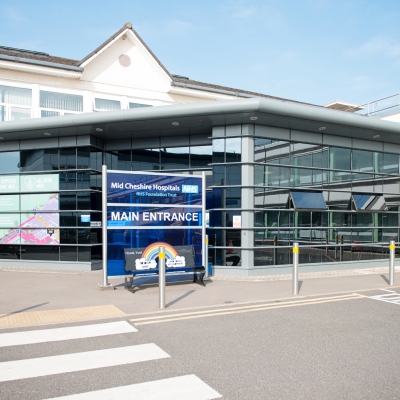Your Anaesthetic
Before you come into hospital you will be seen in the pre-operative anaesthetic clinic, this might be run by a nurse or a doctor. They will ask you about any medical problems, current medicines, allergies and if you have ever had an anaesthetic before. They will do some tests, usually some blood tests and an ECG, or heart tracing. You might be asked to go for more detailed tests like an echocardiogram which uses ultrasound to look at your heart in more detail.
On the day of your surgery you will meet the anaesthetist who will be giving you your anaesthetic. They are a doctor with a number of years of training in anaesthesia. They may ask you the same questions as the pre-operative clinic and also listen to your chest and have a look at your mouth and jaw. It is the anaesthetist’s job to look after you when you are unconscious during surgery, they will also give you medicines to help treat any pain or sickness you might have after your operation.
When you arrive in theatre you will usually be taken into the anaesthetic room, here there will be your anaesthetist, an Operating Department Practitioner or Anaesthetic nurse who works with the anaesthetist and a Health Care Assistant. The surgeon will come into the anaesthetic room for a short time to help with answering some pre-operative questions. There are a number of checks that need to be done before your anaesthetic, it feels like we ask the same questions a lot of times but this is all to make sure you are safe.
The anaesthetist will put a drip into a vein, usually in the back of your hand. They may have already talked to you about doing an epidural or spinal anaesthetic to help with pain relief after your operation, if so; they will do this now, before you have a general anaesthetic. You will have some monitoring put on too, some sticky dots on your chest that keep an eye on your heart, an oxygen monitor on your finger and a blood pressure cuff. Once all of this is in place, the anaesthetist will give you some medicines into your drip that start your general anaesthetic.
During a general anaesthetic you are unconscious and won’t be aware of what is happening. Your anaesthetist will use a breathing tube, placed through your mouth into your windpipe to control your breathing while you are unconscious, this might mean that you have a sore throat when you wake up. While you are unconscious they also keep a close eye on your heart and blood pressure and will give you pain relieving medicines during your operation, the anaesthetist will stay with you until you are awake and able to breath for yourself. They will then take you through to the recovery area.
